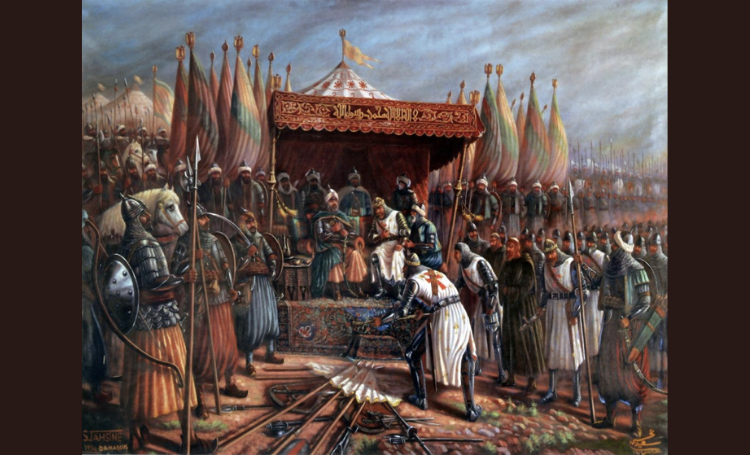Jack Jenkin
Rolling Stone, Mar. 13, 2022
This article was published in partnership with Religion News Service.
Two days before he launched a bloody invasion of Ukraine, Russian President Vladimir Putin sat alone in front of a camera and delivered a rambling, hour-long address. It outlined the ideological justification for what would ultimately become his “special military action” in Ukraine — an invasion that, as far as Putin was concerned, had more than a little to do with religion.
“Ukraine is an inalienable part of our own history, culture and spiritual space,” he said.
Two days later, Patriarch Kirill of Moscow, head of the Russian Orthodox Church, spoke to military leaders and published a statement in honor of Defender of the Fatherland Day. The cleric congratulated Putin for his “high and responsible service to the people of Russia,” declared the Russian Orthodox Church has “always striven to make a significant contribution to the patriotic education of compatriots,” and lauded military service as “an active manifestation of evangelical love for neighbors.”
Within hours, bombs began to rain down on Ukraine.
This religious ramp-up to war was the culmination of a decade-long effort to wrap Russia’s geopolitical ambitions in faith — specifically, the flowing vestments of the Russian Orthodox Church. Fusing religion, nationalism, a defense of conservative values that likens same-sex marriage to Nazism and a version of history that seeks to define Ukraine and other nearby nations as mere subsets of a greater “Russkiy mir” (Russian world), the partnership of Putin and Kirill laid the ideological and theological groundwork for the current invasion.
To view the original article, click here


